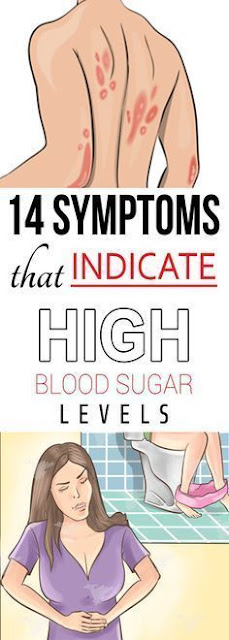Glucose is the main energy source for the human body. The glucose amount in the blood is indicated by the levels of sugar. When we eat, glucose enters our body and it is delivered to our body cells.
Hyperglycemia, or high blood sugar, usually appears when the human body is not able to process the glucose properly, or it just doesn’t have enough amounts of it and this is a condition known as type 1 diabetes.
 |
| Source: besthealthyadvice.com |
The longer the condition lasts, the greater is the damage which can be done to different body parts, especially the kidneys, blood vessels, eyes and the nerves.
People who suffer from this condition have increased levels of blood sugar which is related to different factors such as:
- Lack of exercise
- High levels of stress
- Different illnesses, such as a cold
- Dehydration
- Overeating
- Steroid medications
In addition, kids and young adults can also experience episodes of hyperglycemia in their puberty or adolescence.
High blood sugar symptoms
If your sugar levels are high, it doesn’t necessarily mean that you have diabetes, it is merely one of the symptoms for it. Interestingly, some people with hyperglycemia don’t have any symptoms that point to it.
Most common high blood sugar symptoms:
- Frequent and night time urination
- Blurred vision
- Dry mouth
- Lack of concentration
- Recurring infections
- Impotence
- Slow healing wounds
- Fatigue and tiredness
- Constant thirst
- Dry and itchy skin
- Constant hunger
- Excess abdominal fat and weight gain
- Problems with the nerves
How to reduce sugar levels with glycemic food
The simple GI index shows the number of carbs in foods which increase the levels of blood sugar and they can vary from 0 to 100.
Check out this list of foods which have low GI index and will help you lose weight, so make sure you consume them daily.Continue Reading >> Page 2
0 comments so far,add yours